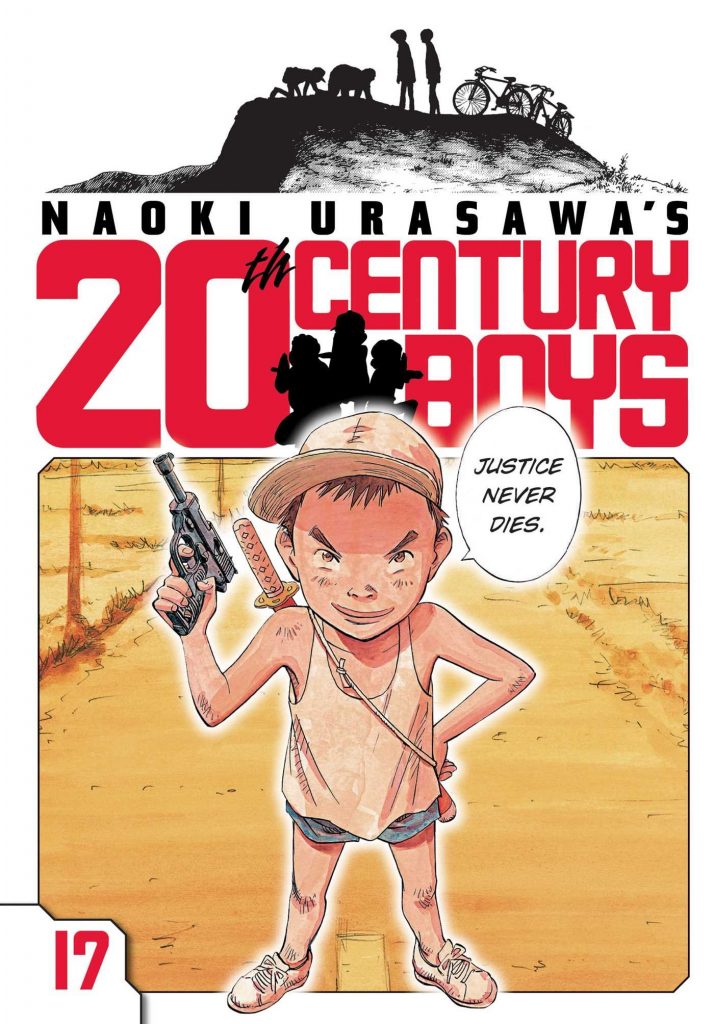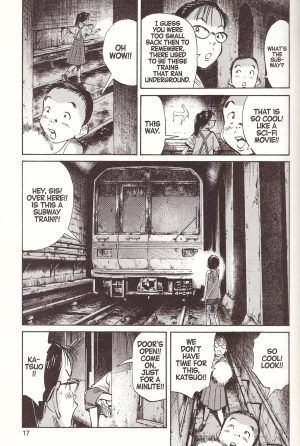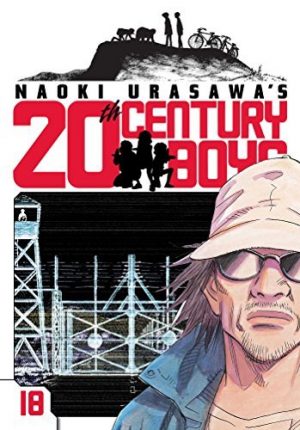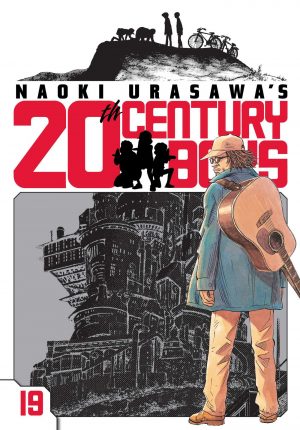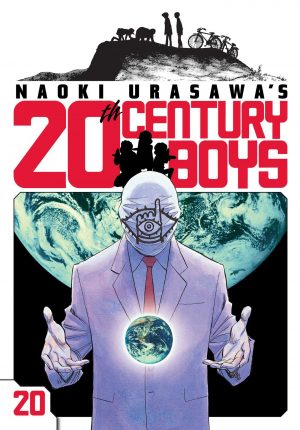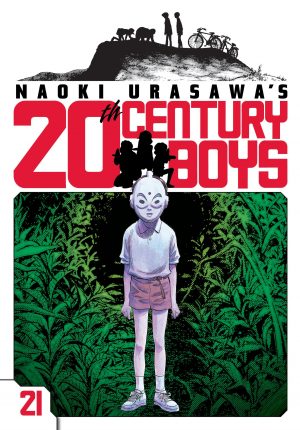Review by Ian Keogh
In Beyond the Looking Glass Naoko Urasawa jumped the present day of 20th Century Boys forward once again, a trick he’s pulled several times since beginning in 1969. We’re now in the third year of the Friendship Era which is an undefined leap from 2015, and unless you’re privileged, it’s not a nice place to be. A plague has devastated humanity, although only a handful are aware it was deliberately generated by the Friends, and areas of Tokyo are now partitioned off by giant walls, allegedly to protect the population from that plague. The one primary cast member we’ve seen in this era, Otcho, believes Friend’s intention is now to destroy the planet.
If anything has been the primary theme throughout such a long saga it’s been the power of imagination to inspire and provoke, and Urasawa highlights this again. The fantasies of Otcho and his friends in the late 1960s have propelled the entire series, but here the young Katsuo’s idolising of wrestlers prompts him to action. It’s also seen in more subtle ways, reflecting earlier events. Kanna is reintroduced, now running a Soba stall such as she loved in childhood. It’s partially a front, but that’s the front she chose. And right at the end we return to the power of music to inspire. It’s been something that’s dipped in and out of the series since Kenji stopped being the focus, and now looks to be returning in a big way. We’ll see in Everybody’s Song.
With only a small amount of vaccine available, Friend controls the population via the plague, using it as an excuse to clamp down on freedom while dangling it in front of people as a reward for services. Depressing glimpses into restrictive procedures are revealed in a couple of flashback chapters detailing what Otcho went though during the first year of the Friendship Era. Urasawa’s view of desperate people is unsentimental and superbly supplied, a belief that life is a constant battle between those who’ll exploit others if they can, and those who’ll stand up for the exploited. The hope he supplies comes in small doses, brief looks at individuals we’ve seen before, updating on their circumstances and positions.
Cross Counter isn’t a happy stopover, but then things are always darkest before the dawn. We’re now over 75% of the way through 20th Century Boys, and how it will play out is still entirely up in the air. That sort of suspense isn’t as common as it should be.
This volume (and volume 19) are for some reason extremely scarce in the original edition, and only available at a reasonable prices when combined with Everybody’s Song in 20th Century Boys Perfect Edition Volume 9.
